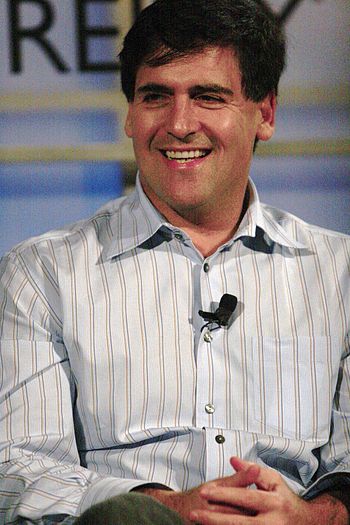Mark Cuban has become one of the loudest voices against new so-called net neutrality regulations that’s not coming from a telecom company’s executive suite.
On his lively Twitter feed and in provocative blog comments, the entrepreneur has questioned the wisdom of the government treating broadband Internet as a kind of public infrastructure, as was recently called for by President Obama. That approach would require that Internet service providers to ensure they treat all content that flows through their networks more or less the same. Cuban’s biggest worry: that those rules, even if well-intentioned, could end up killing innovation.
If you only know the colorful Cuban from ABC’s “Shark Tank,” where hopeful entrepreneurs pitch him and other venture capitalists on their best business ideas, or his role as the NBA-agitating owner of the Dallas Mavericks, you might not know of his hard-earned technology chops. Cuban got his real professional start as a computer consultant, selling that company in 1992 to CompuServ for millions. He later helped grow a service for live online streaming of radio stations and sports events; he and a partner sold Broadcast.com to Yahoo in 1999 for $5.6 billion.
The idea that the federal government should apply firm and fast “neutrality” rules to the Internet is, arguably, quickly becoming conventional wisdom. And there’s nothing that Cuban dislikes more than untested conventional wisdom. We owe it to the Internet, he argues, to ask the hard questions now.
In an e-mail Q&A (Cuban’s preferred method of interviewing on topics like these), I asked Cuban how, exactly, the public should think about the preserving the Internet’s future. Cuban obliged, saying that he’s not motivated by figuring out how to keep selling the movies he produces or the television programming he stars in. Or, at least, not only that. “The promise of the Internet is not reruns of ‘Shark Tank’ or any movie or TV show,” he argued. “It’s that it’s a platform for creativity and innovation.”








